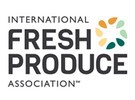The Department of Labor released the Final Rule regarding the Adverse Effect Wage Rate (AEWR) for H-2A employers yesterday delivering the latest in a series of burdensome regulations directly impacting the fresh produce industry. The rule attempts to revise the wages based on employment duties without changing the flawed formula that is used to determine AEWR rate.
“The fresh produce and floral industry already faces enough challenges and the publication of today’s AEWR rule is just one more burden our industry can simply not bear,” said IFPA CEO Cathy Burns. “The H-2A program is unaffordable, ineffective and out of date, and these program changes make it even more difficult for our members to find the workers they need. This is why Congress must act to pass agricultural immigration reform now. America’s agricultural producers simply cannot wait any longer.”
The AEWR is a calculation made by the Department of Labor to determine the wages that are required to be paid to H-2A workers, and the Americans who work along side them in agricultural operations. The new rule is the result of efforts began under the Trump Administration to update the H-2A program. The changes made to the AEWR calculation attempt to revise a fatally flawed wage calculation that should be scrapped in its entirety. While efforts to revise the program seek to protect American workers, the impact has only succeeded in hurting the businesses that employ them. Regardless of the wages offered to American workers, American agricultural employers have struggled to find the workers they need to produce the abundance of fresh fruits, vegetables and floral products that consumers demand.
 Contact:
Contact:
Siobhan May
IFPA
Tel: +1 (302) 781-5855
[email protected]










